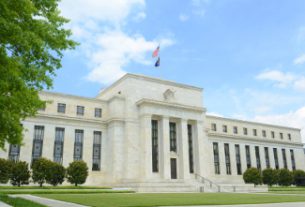The millennial generation, those born between about 1981 and 1996, has been the subject of a lot of press. Millennials differ significantly from their parents in their consumption patterns, particularly when it comes to homeownership. If you’ve been keeping tabs on the housing market in the past few years, you probably are aware that housing prices continue to rise far faster than inflation. Those continuous increases in price have led to declining sales, and particularly low sales to millennials. That has many people speculating that millennials are less interested in buying houses than previous generations. But is that really the case?
It helps to analyze millennials by breaking them up into three different cohorts: those born from 1981 to 1985, those born from 1986 to 1990, and those born from 1991 to 1996. The oldest millennials then are between 32 and 37 today, the next-oldest are between 27 and 32, and the youngest are between 21 and 27. Based on data from live births, and not looking at deaths or immigration, there are around 18.4 million millennials in the oldest cohort, 19.6 million in the next-oldest, and 21 million in the youngest.
Millennials and Market Timing
For investors who came of age during the 1982-2000 stock market boom, the future looked incredibly bright. The economy was booming, stock markets were soaring, and there seemed to be no way that you couldn’t make money. For those who experienced that era, the complaints of millennials that they can’t find jobs, can’t make enough money, and that things are too expensive come across as mere griping. How true is that?
The oldest millennials would have graduated from college between about 2003 and 2007. That means that they were just getting out of college or grad school or just entering the workforce by the time the housing bubble began to burst and the financial crisis hit.
In 2003 stock markets were just beginning to recover from the dotcom bubble, and while they went on to reach new highs in the coming years, the rate of growth wasn’t nearly that of the 1980s and 1990s, which saw annualized returns of nearly 15%. When the financial crisis hit, stock markets lost more than 50% of their value and millions of workers found themselves laid off. Millennials, being the last ones hired, were often the first ones fired.
Finding themselves out of jobs and with their savings and investments decimated, the oldest cohort of millennials found it incredibly difficult to amass wealth. The next-oldest cohort of millennials began to graduate from college in 2008, entering one of the most difficult job markets in decades. Many of them gave up on trying to find jobs, opting instead to go to grad school, business school, or law school, in which case they accumulated even more student debt, making it even more difficult to save and invest.
The youngest cohort of millennials began to graduate from college in 2013, with the absolute youngest millennials graduating this year. And as many people are aware, the continuous rise in prices of college has meant that young people today are perhaps the most heavily indebted generation to graduate from college.
Millennials’ Desires Aren’t That Different
Many pundits have tried to claim that millennials’ tastes are different than previous generations, that they value flexibility and don’t want to be tied down. That in turn is reflected in low home ownership rates among millennials, which some speculate could lead to lower home sales in the coming years.
But it’s not really the case that millennials don’t want to own homes, it’s that they can’t afford to own homes. Graduating into a financial crisis or seeing their wealth wiped out, not to return until years after the crisis, millennials just haven’t had the ability to amass wealth as previous generations have.
A Gen-Xer graduating from college in 1987 would have seen the Dow Jones nearly double over the next six years, while a Gen-Xer graduating in 1993 would have seen the Dow Jones triple from 1993 to 1999. In comparison, a millennial graduating in 2003 would have seen the Dow Jones decline between 2003 and 2009, and a millennial graduating in 2009 probably would have been unemployed for months, if not over a year after graduation.
We’re faced now with a generation starting to enter its early and mid-30s, the traditional time to start buying houses, but with not nearly enough money saved up to even think about buying a house. Rather than falling back to normal levels after the housing bubble burst, housing prices have continued to appreciate thanks to the Federal Reserve’s continued policy of easy money. And with the average millennial carrying tens of thousands of dollars of student debt, homeownership is but a distant dream.
It’s no surprise then that millennials aren’t buying houses even though they want to. They will eventually be able to afford homeownership, but it will likely be several more years before that happens. And it’s not surprising that many of them are bitter about not being able to achieve the same milestones of financial independence that their parents and previous generations were able to enjoy.
Millennials did everything they were told they needed to do to become successful. They went to college and many went to grad school. They got good jobs and started putting money into the stock market to invest and grow their assets. And then they got whacked by the financial crisis and saw their dreams of a bright and prosperous future evaporate. It took nearly a decade for markets to get back to pre-crisis growth rates, but now it looks like we may be on the verge of yet another recession, with even more of a delay to millennials’ dreams.
Had the oldest millennials invested in gold rather than stocks they would have been better off today. They would have seen annualized returns of 8.5% or more from gold, rather than 6.5% from stocks. They wouldn’t have suffered the worst effects of the stock market crash in 2008 and 2009 either, as gold continued to increase as stocks lost more than 50% of their value. Many millennials may very well decide to invest in gold as a hedge against a future economic downturn, as many investors have done for centuries.
It’s clear that millennials are facing a very different economic and investment climate than previous generations, and that calls for a rethinking of investment targets. Millennials have been burned once already by stock markets, and that has severely delayed their ability to live the American Dream. Do they want to risk being burned a second time?
This article was originally posted on Goldco.




